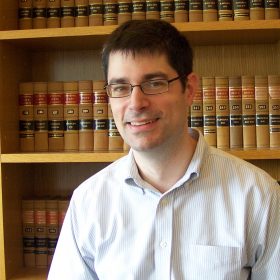What was your dissertation title and topic?
My dissertation, “Governing the Good,” explores reasons a society of morally good people would need law and political authority but not coercive enforcement. It further argues that the entitlement to make law and the entitlement to enforce it coercively can come apart in actual societies.
What seminar stood out and influenced your thinking?
Seana Shiffrin’s joint grad-undergrad Rawls course and Barbara Herman’s Kantian ethics course both influenced me greatly.
What, if anything, about the UCLA department’s culture and approach to philosophy has influenced your intellectual approach?
UCLA encourages work that is both bold and careful: bold, in the sense that it takes different directions from those currently in the literature and perhaps even asks new questions; careful, in the sense that it defines terms carefully, avoids unstated, questionable assumptions, and addresses important objections. I aspire to do work that has both these qualities.
The faculty’s interest in broadly Kantian approaches to ethics influenced my views as well as my choice of topic. I started graduate school intending to work in mind and epistemology. Studying Rawls with Seana Shiffrin and Kant with Barbara Herman inspired me to switch my focus to value theory.
How have your philosophical interests changed since you were at UCLA?
Partly because of the jobs I have had (including a post-doc at the NIH as well as my current position at Wharton), I have focused more on applied topics. These currently include ethical limits on law enforcement, the moral obligation to obey the law in business contexts, and ethical constraints on voluntary transactions. I remain interested in Kantian moral and political philosophy and in philosophy of law.
If your current career is inside of academia, what’s your favorite course to teach right now? Do you have a recent publication you’d like to mention?
I regularly teach Ethics and Social Responsibility (a business ethics course for undergraduates) and Markets, Morality, and Capitalism (a course on the criteria for evaluating economic systems).
My paper “Imprisonment and the Right to Freedom of Movement” was recently published in Rethinking Punishment in the Era of Mass Incarceration, edited by Chris W. Surprenant.
Any all-time favorite philosophical articles or books you would recommend? Any new discoveries?
Kant’s Groundwork will always hold a special place in my heart (and head). Recently, I have been thinking about Alan Wertheimer’s and Ruth Sample’s work on exploitation.


